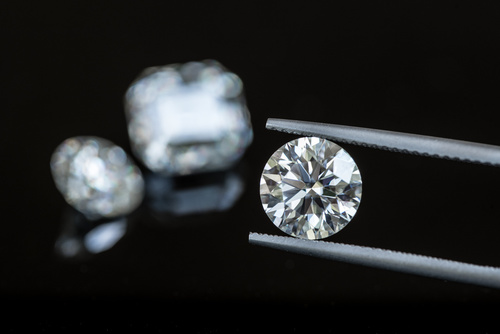
24. Would you consider stocking laboratory-grown diamonds?
| |
2016 |
2017 |
2018 |
| Yes |
21% |
16% |
18% |
| Maybe |
36% |
37% |
37% |
| Already do |
10% |
15% |
16% |
| Never |
33% |
32% |
29% |
25. What is your strongest feeling about laboratory-grown diamonds?
| |
2016 |
2018 |
| Afraid |
12% |
10% |
| Intrigued |
18% |
14% |
| Excited |
10% |
11% |
| Disdainful |
19% |
21% |
| Neutral |
41% |
43% |
26. If you stock laboratory-grown diamonds, what’s your approach to marketing them?
I aggressively let everyone know I have them.
 10% 10% |
I market them in much the same way as any other product
 42% 42% |
I quietly let customers know they are an option
 48% 48% |
27. In what order would you recommend these alternatives to a customer who was reluctant to buy a freshly mined diamond?
2016
1. Previously owned
2. Colored gemstone
3. Lab-grown diamond
4. Moissanite
5. CZ
2018
1. Previously owned
2. Colored gemstone
3. Lab-grown diamond
4. Moissanite
5. CZ
NOT SO FAST: Though the ranking remained static, more jewelers (20%) said laboratory-grown diamonds would be the first alternative they recommended to such customers compared to just 13% in 2016.
28. Legal Quiz
Check the terms you’re allowed to use to describe laboratory-grown diamonds, according to the FTC:
Laboratory-grown
 94% 94% |
Manmade
 56% 56% |
Laboratory-created
 47% 47% |
Synthetic
 35% 35% |
(Manufacturer-name)-created
 34% 34% |
Cultured
 20% 20% |
Simulant
 7% 7% |
Imitation
 6% 6% |
Comment: Overall, you did pretty well. The top six terms can all be used, although with some qualifications, while the bottom two — “simulant” and “imitation” — are verboten, according to the FTC. Now, those qualifications: “cultured” can be used, but only if in addition to one of the FTC’s three pre-approved terms: laboratory-grown, laboratory-created, or manufacturer-name created, says Tiffany Stevens, CEO and president of the JVC. “‘Synthetic’ can still be used, but it shouldn’t be used to imply that the lab-grown is a simulant,” she says, or to disparage competitors. “Lastly, please also keep in mind that ‘real, natural, genuine, precious and semi-precious’ can only be used to describe diamonds and colored gemstones from the earth,” she says.
Advertisement